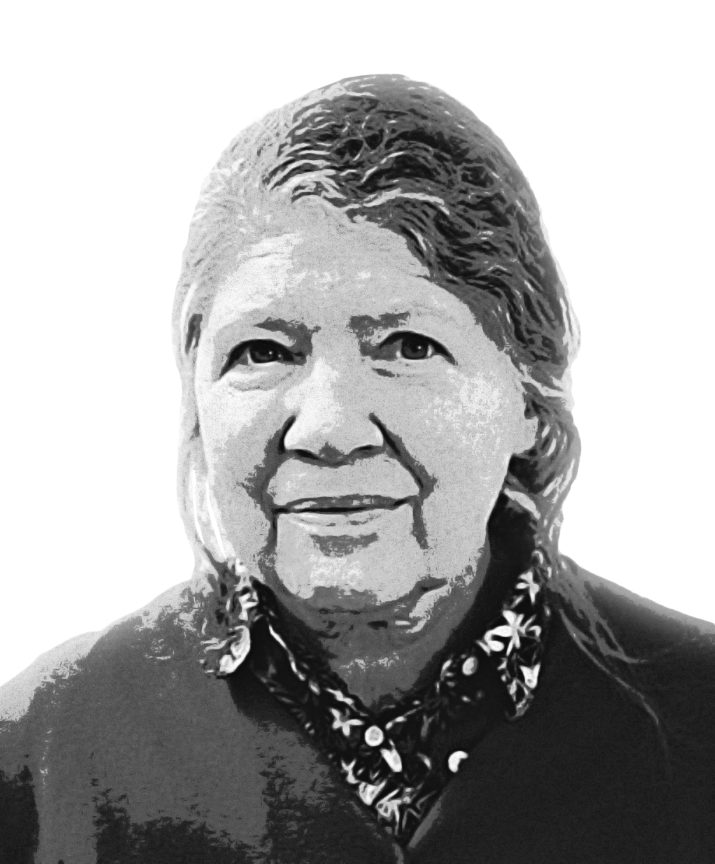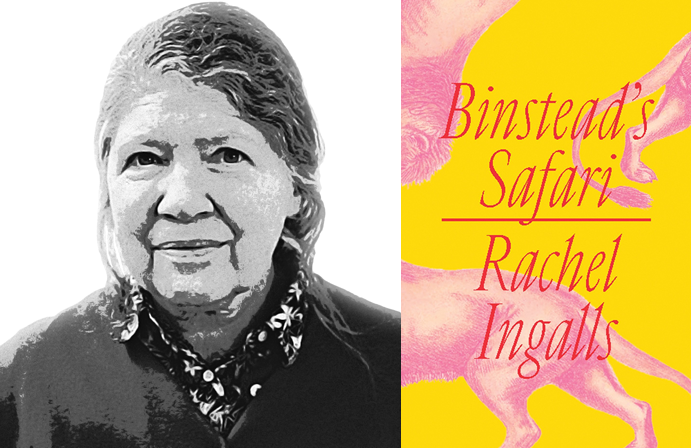

Stan Binstead and his wife, Millie, reached London early in the morning. They both felt heavy and tired from their flight and were already weighed down by an emotion that made for even greater lassitude — a kind of inertia, intermittently broken by irritable indecisiveness. In the army they call it combat fatigue.
He hadn’t wanted to bring her along; she kept pleading until he gave in. No sentimental argument would have persuaded him, but she wasn’t in the habit of thinking up such maneuvers. She would never ask, “How could you leave me?” or tell him, “You don’t love me.” She had just said, “But I’ve never seen London. I’ve never been to Africa. It’s the only chance I’ll ever have to go on a really nice vacation. I’ve never been out of the country at all.” It was true. She hadn’t even been away from New England before the first time he’d taken her to visit his family.
“The money it would cost,” he had said, as if otherwise, naturally, it would be all right. He needed to go, for research. That was what he said. Her presence would be a luxury.
Then, right on time, as though planned that way, her Great Aunt Edna died, leaving her a nice little sum of money and several glass cases filled with knick-knacks that would have been useless all the time they were going into the collection, yet were now in fashion and could be sold for quite a lot. Millie had been fond of the old lady and was overjoyed about the bequest. How nice of her it had been, she kept saying. How thoughtful.
They dozed for part of the morning in the twin beds of their hotel room, had lunch downstairs and made plans for their stay. Stan hadn’t been able to get hold of his friend, Jack, who — according to the girl who answered the phone when he called up — was still away on a long weekend in the country. It was some kind of holiday in town; all the stores were closed. Millie wanted to take one of the tourist bus rides with him. He told her no, she should go herself and he would stay in the room and read the papers.
“Oh, Stan,” she said. “You come three thousand miles just to read the newspapers? You can buy the same ones at home.”
“Well, I don’t want to go on one of those tours.”
“Okay, we’ll walk.”
“It’s raining.”
Millie’s face took on a peculiar look, as though parts of it had shrunk. “We’ll walk in the rain,” she said.
That was what they ended up doing. They went through a few parks, saw some fine crescents and cornices and squares, and Millie asked him at least three times if he wasn’t glad she’d remembered to pack the umbrellas. As they walked forward through the drizzle, he thought: It’s all right sometimes, then suddenly it’s like this. I was foolish. I should just have left. I should have said: Take a vacation wherever you want to, as long as it’s a long way away from me.
They got lost, found an Italian restaurant that was open, and had supper. They drank twice as much as usual, becoming mildly drunk, and were out on the wet streets again, feeling befuddled but more enthusiastic about London than they had been before.
Stan said, “This is a great town.”
“My feet are turning all funny,” Millie told him, in a high little voice like a child at a birthday party.
“Come on, funnyfoot,” he said close to her ear.
He put his arm around her. She had an idea that at last things were going to be all right. Back at the hotel, they made love for the first time in many months. But, in the morning, nothing had changed. They had breakfast, he spent half an hour telephoning, and was finally able to find his friend, Jack.
“Will you be all right shopping, and so on?” he asked her. “Can’t I meet Jack?”
“I think it would be sort of boring for you.”
“But I’d like to come.”
“We’re just going to be talking shop the whole time. And catching up on all the years we haven’t seen each other.”
She smiled, and thought: So, it’s you who would be bored if I came along.
“The whole day?”
“Well, look. There are all those tours you wanted to go on, and the museums, and if you could try to get some of the tickets, that would be a help. Unless — no, I won’t know till I talk to Jack. I want to see some of the footage from that documentary he worked on. They may set it up for the evening. You go enjoy yourself, see the town. I’ll do the American Express and the Africa part.”
“You don’t want to do anything together?”
“I’ve got these meetings. I told you. And I’ve got to do some research in the libraries. Listen,” he said, nervousness coming into his face and voice, “I told you before we got here, long before: I’m supposed to be working. You wanted to come along — fine, but I can’t hold your hand.”
“I only asked.”
He went to a meeting and had lunch with some of his colleagues.
*
The trip would never become a second honeymoon, as she had begun to hope the night before. No chance of that. It would be another eight or ten months before he decided he wanted her again.
She went to a museum. She liked museums, but it always took as much time to read the information as to look at the things.
This bowl is decorated by a process known as cloisonné. This figure represents the goddess Hathor. The dwarf in the corner is probably the royal sandalbearer.
There were crowds everywhere. She got on a bus to go back, but it went in the wrong direction. After doing the same kind of thing several times, she walked or took taxis from the Underground stations. The Underground was the one part of the city she understood immediately. It was exactly the way it promised to be. When the chart said west, that was what it meant, straight as an arrow. The plans on the walls coincided with real maps of the city and the electric lines were just as they ought to be: left, right, up, down. And each one was in a different color.
She went to all the big museums, one after another, visited a couple of the parks farther out of town, walked through the botanical gardens and went to a matinée. She bought two pairs of shoes, and began to enjoy herself.
Stan was off meeting people with his friend. And who knew who else. That first evening he’d gone out alone, he had come back drunk. And the next, he’d tottered in so late that when she turned on the light, he said he was too tired to talk and if she made a fuss or even said a word, he’d never speak to her again. On the next day, the rain stopped for an entire twenty-four-hour stretch and she had tea alone in an upstairs tea-room filled with little chairs and tables that seemed made for children. She saw exactly the right present for her mother-in-law, attended an afternoon piano concert, was caught in the rain afterwards, couldn’t find her way back for an hour, and got her period.
They went to the theater together once. She asked why this friend, Jack, couldn’t join them. Conferences, Stan said.
*
She was going from shop to shop one day, looking for a nice purse to send her sister, Betty. The sun was out, she waited at the curb for the traffic lights to change, and then when they did, caught sight of herself in the plate glass of a store opposite. She saw an ordinary woman, mooning along the street, who looked like somebody else. She thought: My God, I look like somebody’s mother. The thought paralyzed her for an instant. She let the lights change a second time before she moved with the crowd. She crossed the street towards her reflection, stopped outside the building and pretended that she was waiting for someone. She wanted to be still and think for a while, but there was no place to sit down.
If I don’t do something, she thought, nobody else will. I’ve got to do something. It’s already too late anyway, so why not? Could anything be worse than the way things are?
She went and had her hair cut, bought some clothes and earrings, makeup, bead necklaces, a bracelet and some nail polish which she never used but suddenly thought she might try. She decided to go out alone in the evening. Stan would be back late that night too. He had warned her that every night was going to be like this.
She stood outside the opera house and bought a ticket at the side entrance near the back, where people were selling because their favorite dancer had been replaced by someone else. She had thought it would be an opera, but it was a ballet: the girl in a pink costume, men giving her roses, the wicked witch putting a spell on her and the prince eventually finding her and waking her up. True love, rescue, marriage. Happily ever after.
At the end, when the girl next to her screamed, “Bravo,” Millie yelled too. She was carried away. Everyone around her was shouting appreciation. She was no longer sure that she wanted to go on to Africa. She liked London. And afterwards, near midnight as she leaned towards her image in the hotel mirror, she thought she appeared completely different. She looked better.
Stan still hadn’t come in. She heard him much later and put her arm across her eyes until he banged into the wall and hit the switches that turned off the bedside lamp and lit up the one near the bathroom.
The first thing he said to her in the morning was, “What have you done to yourself?”
“For heaven’s sake,” she told him. “I had a haircut, that’s all.” He looked astonished. She never answered back like that. But he hadn’t noticed the other changes in her.
Rachel Ingalls is an American-born author who has lived in the UK since 1965. She is the author of the novels Mrs. Caliban and Binstead’s Safari as well as numerous novellas and short stories.
This excerpt from Binstead’s Safari is published by permission of New Directions. Copyright © 1983 by Rachel Ingalls.
Published on February 5, 2019.




